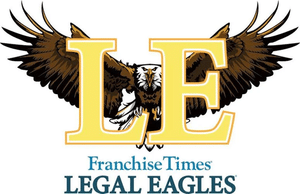Sole Proprietorship
- Simplicity of organization – this is the most common form of business organization in the United States because it is the easiest and least expensive to establish.
- Minimum legal restriction – fewer reports have to be filed with government agencies. There are no charter restrictions on operations.
- Ease of discontinuance – the business can be terminated at the will of the owner.
The owner is truly the boss, making all decisions, keeping all profits, and assuming responsibility for all losses and debts.
- Difficulty in raising capital – this can be a problem since an individual’s resources are typically less than the pooled resources of partners.
- Limited life of the business – untimely, unanticipated, or unplanned removal of the proprietor from the operation of the business may have ramifications for creditors.
- Unlimited liability – this is by far the greatest disadvantage to the proprietorship. Even though proprietors may invest only part of their capital in the business, they remain personally liable to the full extent of their assets for the liabilities of the business.
Partnerships
- Greater possible capital availability
- Greater resources for decision making, support, creative activity
- Unlimited liability in general partnerships
- Divided authority – having to divide the authority for making decisions among the partners can delay the decision-making process and occasionally lead to disagreement.
Limited Liability Company (LLC)
- Allow greatest flexibility for customizing the structure of the business Limits member liability
- In many states, an LLC may have only one member (have the benefits of a sole proprietorship but limits liability).
- Requires comprehensive operating agreement because of the high degree of variability/flexibility.
Corporation/S-Corporation
- Limited liability to stockholders – liability is limited up to the amount invested personally in the business. In addition, personal assets may not be seized by creditors to satisfy debts (although now creditors often request personal guarantees on business loans).
- Perpetual life – the business continues as a legal entity. Shares in the corporation can be passed on to heirs.
- Ease of transferring ownership – stockholders can sell their shares when they desire, if there is a market.
- Ease of expansion of the company – greater capacity to raise capital by legal sale of stock.
- Government regulation – a corporate charter must be obtained from the state, and the corporation is subject to all state and record keeping regulations that pertain to corporations.
- Costs to organize a corporation are higher.
- Unless permission is obtained from other states, the corporate charter restricts operation to the state where it was issued.
- Double taxation feature unless S-Corporation election is made.







